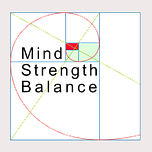“Intuition is the source for the compassionate and sustainable stewardship we now need.”
— Hrund Gunnsteinsdóttir, author
Resilience
If you can pronounce Hrund Gunnsteinsdóttir, then you should listen to her TED talk on resilience (Gunnsteinsdóttir 2024). I listened to the first minute, which was enough to remind me that to be resilient you need to have the power to decide.
I have been thinking about free will. It is an annoying question that keeps popping up. It interrupts my thinking in the way the question of how much money I’m making interrupts me when I’m doing what I think is interesting.
I find theoretical physics interesting, but it’s not obviously important in our lives. Yet, physics is connected to the question of free will. It rests on the question of whether or not we live in a mechanical universe.
The question is this: in building environments where our roles are clear, have we made ourselves into machines? In a society where all operates according to plan, do we need to make decisions?
This is a question that Donald Trump has placed in front of us as we proceeded half asleep into the future. We find our progress blocked by a burning bridge that poses the question, “Are you responsible for this?”
Do Populations Think?
Underlying this is whether or not populations think. Do populations have free will? That interesting question is partly determined by whether or not individuals have free will. This personal question is pertinent to our mental health.
On an individual level, free will is linked to resilience because both operate in the same realm. In exercising your free will you confront uncertainty, and maintaining free will under uncertain conditions requires resilience. That is, you cannot exercise free will unless you’re able to return to what you’ve decided. Free will is the object; resilience is the mechanism.
The value in this comparison lies in recognizing they’re connected by commitment. Free will amounts to nothing if you can’t make something happen. What difference would having free will make if, like a pinball, you changed direction when you hit the next obstacle. If you cannot maintain the direction you’ve chosen, you’re a slave to circumstance.
The Path of Least Resistance
If you really have free will, then you will encounter obstacles. If you don’t encounter obstacles, then you’re following a path of no resistance. And if you’re following such a path, then have you really made any choice at all? Resilience demonstrates you are not doing what circumstances dictate and that you’re not following someone else’s plan.
If you listen to Robert Sapolsky, a primatologist, in a YouTube video on the absence of free will (Sapolsky 2024)—I can endure only the first 5 minutes—then you’ll probably agree that free will is a question of degree. Sapolsky’s point is that different situations allow different degrees of autonomy.
We’ll have different choices depending on the habits we’ve developed. We’re always constrained in some regard. The notion of complete freedom can only mean complete chaos. Sapolsky would agree with this.
There are always constraining forces and our “freedom” is a choice between constraints. Our choices are determined by our character but the concept of complete free will, as in some bolt of autonomy from the 5th dimension, is nonsense.
If you’d like to find greater commitment and resilience, you can schedule a free call and I’ll tell you where you’ll find them.
Listen to this episode with a 7-day free trial
Subscribe to Stream of Subconsciousness to listen to this post and get 7 days of free access to the full post archives.













